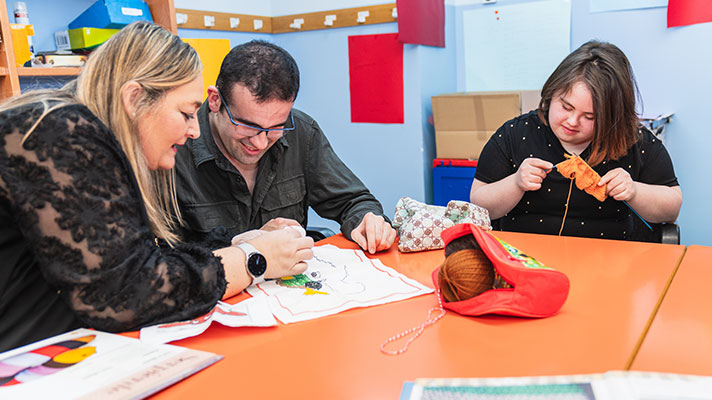What is Special Education?

Special Education is a set of services provided to students who experience exceptional learning needs. Governed by federal law (Individuals with Disabilities Education Act, IDEA), special education is defined as: “Specially designed instruction, at no cost to parents, to meet the unique needs of a child with a disability.” Special education services may be provided across a variety of educational environments to students who have an individualized education program (IEP).
Eligibility for special education services requires that students have an identified disability that impacts their ability to learn and requires additional services and resources to effectively participate in school. Children who typically qualify for special education services include those with the following disabilities:
- Intellectual disability
- Hearing impairments (including deafness)
- Speech or language impairments
- Visual impairments (including blindness)
- Serious emotional disturbance
- Orthopedic impairments
- Autism spectrum disorder
- Traumatic brain injury
- Other health impairments
- Specific learning disabilities
- Developmental delay
Under the law, the IDEA ensures that regardless of a student’s disability or level of severity, schools must provide an appropriate education to ALL children with a disability (ages 3-21). It also requires that the following six principles be provided for students who receive special education services:
- Free and Appropriate Public Education (FAPE) — a public education at no cost to parents/guardians or children designed to meet the individual needs of each student, provide access to the general education curriculum, provides services in accordance to a student’s IEP, and results in an educational benefit to the child.
- Nondiscriminatory Identification and Evaluation — refers to the process and instruments used to identify individuals with a disability. Having the appropriate professional disposition is vital in educators, especially in special education classrooms. Schools are required to use nonbiased methods as well as multiple approaches in the evaluation process to ensure that there is no discrimination on the basis of race, culture, or native language. All evaluation instruments must use the child’s first language. No identification or placement decisions may be based on a single evaluation instrument or test score.
- Individualized education program (IEP) — this document is the foundation of special education and specifically describes the services to be provided to the student with a disability. The IEP includes a description of a student’s current level of educational performance, information on how his or her disability influences academic performance, and details needed adaptations and accommodations. This document also specifies the educational settings in which the student will receive instruction in the least restrictive environment, the learning goals and objectives that will be addressed within a targeted year, behavior management plan (if needed), transportation needs, and related services.
- Least Restrictive Environment (LRE) — this indicates the educational settings in which a student with a disability receives special education services. The assumption is that all children will be educated alongside their peers without disabilities, to the greatest extent appropriate. It is only when it is determined that a student’s education cannot be achieved satisfactorily using supplemental aids and services in general classroom settings that alternative educational settings would be identified. At that time, the LRE might include special education services received part- or full-time in a resource room setting, a self-contained classroom setting, and/or community-based settings.
- Parent Participation — parents of a child with a disability must be a member of any group that makes decisions regarding the placement and LRE of their child. Parents have a right to notification of all meetings regarding their child’s placement, access to planning and evaluation materials, and notification of any planned evaluations. Both parents and students must be invited to attend IEP meetings.
- Due Process Safeguards — these include the protections afforded to children and their parents under IDEA. Safeguards include: obtaining parental consent for all evaluations and educational placement decisions, confidentiality of all records relating to a child with a disability, independent student evaluation at public expense, and due process hearings when the school and parent may disagree.
If you are ready to make a difference as an educator and learn new ways to nurture a modern classroom, earn your online Master of Science in Education in Special Education from Purdue University. Within this convenient online platform, you can reach your goals of higher education at an accelerated pace. Call 877-497-5851 to speak with an admissions advisor.